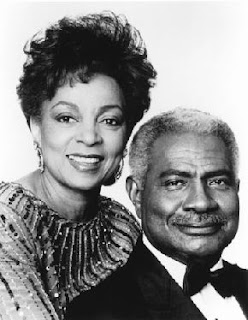Celebration of Women's History Month: Ruby Dee
March is Women’s History Month and every year, Harlem One-Stop pays homage to women who have achieved great things and made valuable contributions to society. This year, we’re honoring Ruby Dee, an actress who has appeared in hundreds of plays, movies, and television shows, the author of several books, and a staunch political activist.
Ohio,
and grew up in Harlem. She fell in love with acting during her teen years studying
at both Hunter College and the American Negro Theater in Harlem. Dee began her
career as a stage actress making her debut in 1946 in the Broadway production
of Anna Lucusta and was married to
blues singer Frankie Dee Brown from 1941-1946. In 1948, she married fellow
actor Ossie Davis, her best friend and frequent co-star whom she met while
starring in Robert Ardrey’s play Jeb
about a black soldier who returns home to his family in the south with a broken
leg after serving in World War II. Dee
then made her film debut playing Jackie Robinson’s wife Rae Robinson in the
1950 biographical film The Jackie
Robinson Story starring Robinson himself. Dee’s next big break came in 1959
when she landed the role of Ruth Younger in a Broadway production of A Raisin in the Sun in 1959, for which
she received critical acclaim. Sidney Poitier was her co-star in the playing
the role of Ruth’s husband Walter. Dee and Poitier would reprise their roles in
a 1961 television version the play.
Dee continued getting more and more honorable roles in film,
theater, and television and often collaborated with her husband. She starred in
Davis’ 1961 Broadway play Purlie
Victorious in which Davis played the title role of preacher Purlie
Victorious Judson who tries to save a local Georgia church and Dee played a
housemaid. The two would play the same parts in a 1963 film version of the play.
In 1965, she became the first black woman to star in lead roles playing Cordelia
in King Lear and Kate in The Taming of the Shrew at the American
Film Festival in Stratford, Ct., and she was the first black actress to star on
an evening soap opera playing Alma Miles on Peyton
Place in 1968.
In 1980, Dee and her husband launched a half-hour talk show
called Ossie and Ruby that aired on
PBS where they presented the work of black artists. They received high praise
for their roles in Spike Lee’s 1989 drama Do
The Right Thing where Dee won an Image Award for Outstanding Lead Actress
in a Motion Picture and Davis for Outstanding Supporting Actor in a Motion
Picture. In 1998, celebrating 50 years of marriage, the two wrote an autobiography
called With Ossie and Ruby: In This Life
Together which is an honest account of their lives as a couple and as
individuals as well as the professional and personal challenges they’ve faced
and overcame.
Ossie Davis’ unexpected death in 2005 was a devastating loss
for Dee, but despite her grief, she continued to work receiving a Screen Actors
Guild award and an Academy Award nomination for her role as the mother of
notorious drug dealer Frank Lucas played by Denzel Washington, and most
recently narrated the 2013 biographical television film Betty and Coretta about the widows of Malcolm X and Dr. Martin
Luther King Jr. Other notable roles during the later years of Dee’s life
include those of Grandmother Baxter in a 1979 television production of I Know Why the Caged Bird Sings based on
Maya Angelou’s classic novel, prolific author Zora Neale Huston on the 1990 PBS
special Zora Is My Name, and Rowena
in the 1991 film Decoration Day for
which she won an Emmy.
Ruby Dee and Ossie Davis were very active during the Civil
Rights Movement in the 1960s participating in several marches including the
1963 March on Washington where they served as emcees. They spoke out on
numerous issues fighting for the rights of African Americans, and were close
friends with both Martin Luther King Jr. and Malcolm X with Davis delivering
the eulogy at the latter’s funeral. Dee was a member of many civil rights
groups and organizations including NAACP, Congress of Racial Equality (CORE),
the Student Nonviolent Coordinating Committee, the Delta Sigma Theta sorority,
and the Southern Christian Leadership Conference.
The two have also earned many awards and recognition for
their activism and contributions to the arts. Dee won a National Medal of the Arts in 1995 and a Lifetime
Achievement Award from the Screen Actors Guild in 2000. In 2004, she and Davis
received Kennedy Center Honors. In 2007, Dee and Davis’ memoir With Ossie and Ruby won a Grammy for
best spoken word album, a category that includes audio books.
Other books Dee has published include My One Good Nerve which features a collection of short essays,
stories, and poems, and the children’s books Two Ways to Count to Ten, and Tower
to Heaven.
While Dee has firmly established herself as a successful
actress and activist, Dee has never forgotten her roots and credits growing up
in Harlem to be a major part of her identity. "I don't know who I would be
if I weren't this child from Harlem, this woman from Harlem. It's in me so
deep," she has said.
Ruby Dee passed away on June 11, 2014 at age 91 at her home
in New Rochelle, N.Y.
Alison Martin for Harlem One Stop
Labels: achievements, career, Harlem, ozzie davis, ruby dee, women's history month




